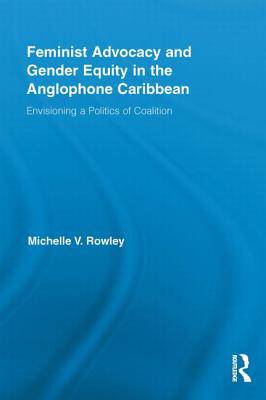
- Retrait gratuit dans votre magasin Club
- 7.000.000 titres dans notre catalogue
- Payer en toute sécurité
- Toujours un magasin près de chez vous
- Retrait gratuit dans votre magasin Club
- 7.000.0000 titres dans notre catalogue
- Payer en toute sécurité
- Toujours un magasin près de chez vous
Feminist Advocacy and Gender Equity in the Anglophone Caribbean
Envisioning a Politics of Coalition
Michelle V Rowley
90,45 €
+ 180 points
Format
Description
This book uses the Anglophone Caribbean as its site of critique to explore two important questions within development studies. First, to what extent has the United Nations' call to implement gender-mainstreaming projects resulted in the realization of gender equity for women within developing societies? Second, does gender-mainstreaming have the conceptual, operational, and technical capacities to address the centrality of the body in 21st-century lobbies for gender equity? In answering these questions, Rowley examines such issues as reproductive rights and equity, sexual harassment, and sexual minorities' rights.
Spécifications
Parties prenantes
- Auteur(s) :
- Editeur:
Contenu
- Nombre de pages :
- 276
- Langue:
- Anglais
- Collection :
Caractéristiques
- EAN:
- 9780415847650
- Date de parution :
- 14-10-13
- Format:
- Livre broché
- Format numérique:
- Trade paperback (VS)
- Dimensions :
- 152 mm x 229 mm
- Poids :
- 376 g

Les avis
Nous publions uniquement les avis qui respectent les conditions requises. Consultez nos conditions pour les avis.






